

EV (Electric Vehicle) technology is characterized by cars that don’t use fossil fuel and can be charged in any appropriate electrical outlet.
Because they don't have a combustion engine, electric cars have fewer wearing parts and require less maintenance. The experience of driving a 100% electric car can be surprisingly fun, thanks to its instantaneous availability of maximum torque and impressive acceleration. Driving a 100% electric Hyundai model is a conscious and sustainable choice: it only has pros!
Learn More
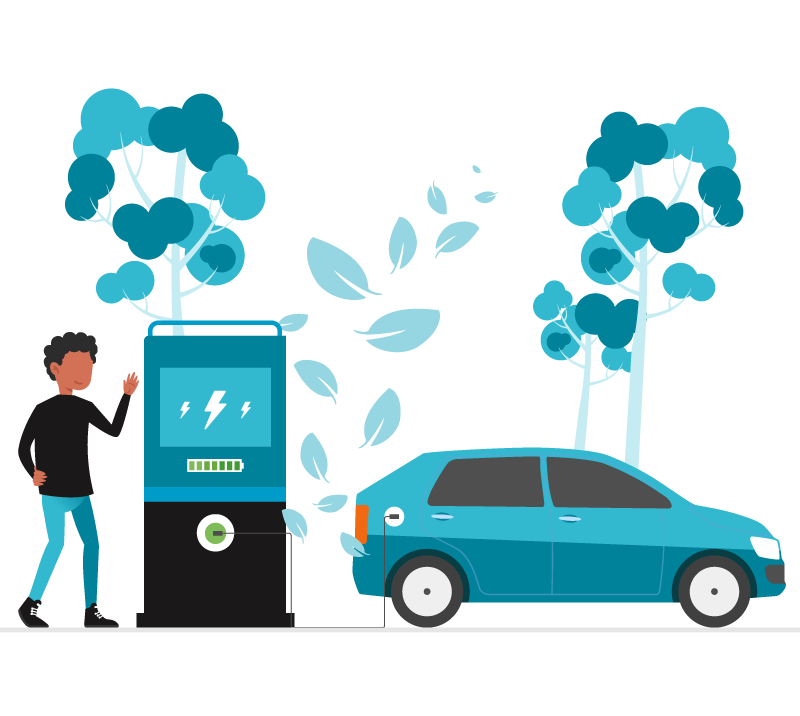
Electric cars have an extremely developed technology. The electric motor is progressive, so it doesn't need a gearbox or a clutch. Batteries determine the power that the engine can use and the autonomy of an electric car, which does not produce any kind of emission.
Like charging a mobile phone, the energy needed to charge electric cars comes from the electricity grid. The type of socket, the type of charging cable and the charging power used define the charging speed.
With exceptional performance, without any vibrations and practically no noise, the electric technology provides a comfort that allows you to enjoy your driving to the fullest.
Electric cars have an extremely developed technology. The electric motor is progressive, so it doesn't need a gearbox or a clutch. Batteries determine the power that the engine can use and the autonomy of an electric car, which does not produce any kind of emission.
Like charging a mobile phone, the energy needed to charge electric cars comes from the electricity grid. The type of socket, the type of charging cable and the charging power used define the charging speed.
With exceptional performance, without any vibrations and practically no noise, the electric technology provides a comfort that allows you to enjoy your driving to the fullest.
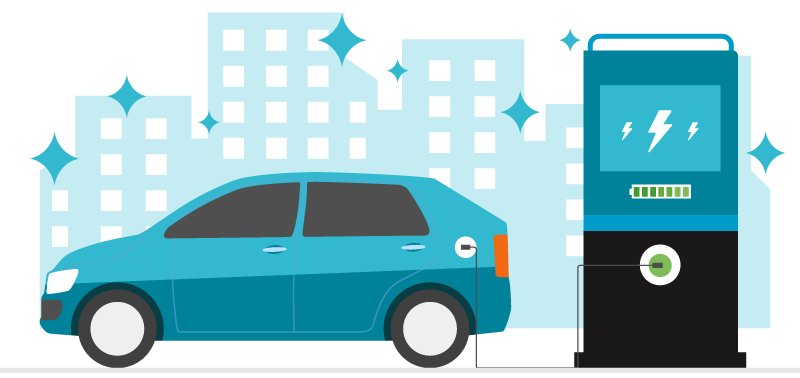
By driving an electric Hyundai you are contributing to a cleaner planet with zero noise, zero greenhouse gas emissions and zero emissions of polluting materials.
An electric car exclusively use electricity. Charge it at home or at the public charging station network.
Hyundai trams require less maintenance. There are no oil changes and the brakes wear less.
Electric cars are exempt from usual circulation taxes. Also, you can benefit from free parking in various parts of the country.
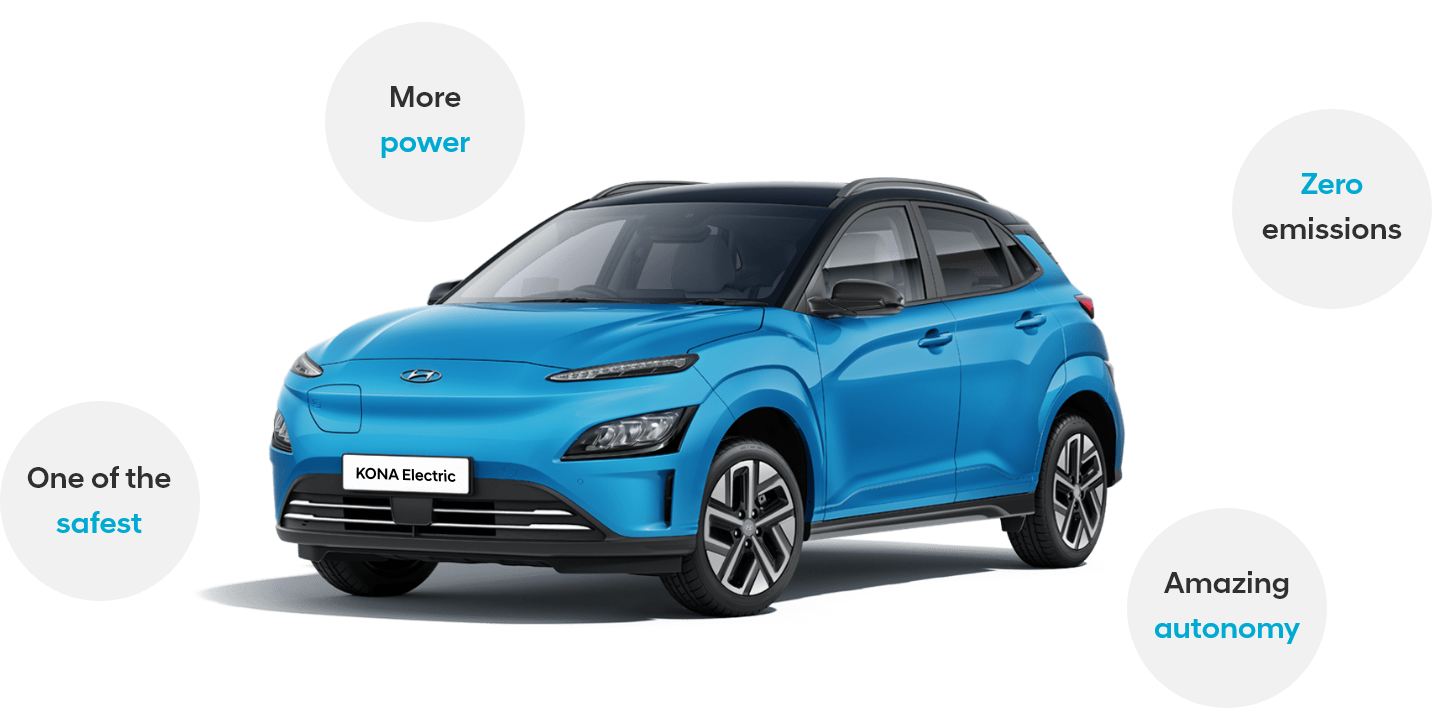
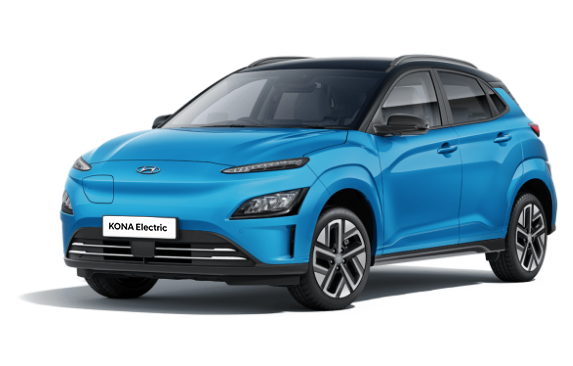
Cutting-edge design, a driving range over 400km plus a suite of advanced connectivity, plus a roomy, connected and versatile interior: everything about the new Kona Electric will make you stand out from the crowd.
Find out moreIf you have a short commute and mostly do quick trips, and have short daily commutes in a day, then yes, an EV will probably suit your lifestyle. A consistent daily routine will make it easier to return to you house at night, plug it and and have your EV fresh and recharged for the next day.
Despite being more expensive at first, EV’s benefit from tax breaks and financial incentives and, as the years progress, have lower operating costs (fuel and maintenance), making them cheaper than gas-powered cars in their lifetime.
While it's true that many EVs use lithium-ion batteries, which are also used in laptops and cell phones, auto manufacturers engineer vehicle batteries to significantly outlast your phone. This is done in part by reducing the operating range of the battery, never allowing it to get fully charged or completely empty (even if the display that the driver sees says otherwise). It should also ease your concern to know that every new EV comes with a battery warranty and most manufacturers will replace an EV's battery pack if its capacity degrades past a certain threshold.
EVs have to adhere to the same safety regulations as conventional vehicles. If you’re concerned about driving through water, know that the wadding depth (the amount of water a car can drive through) of an EV is normally around the same as for its petrol or diesel equivalent and does not present any higher risks.
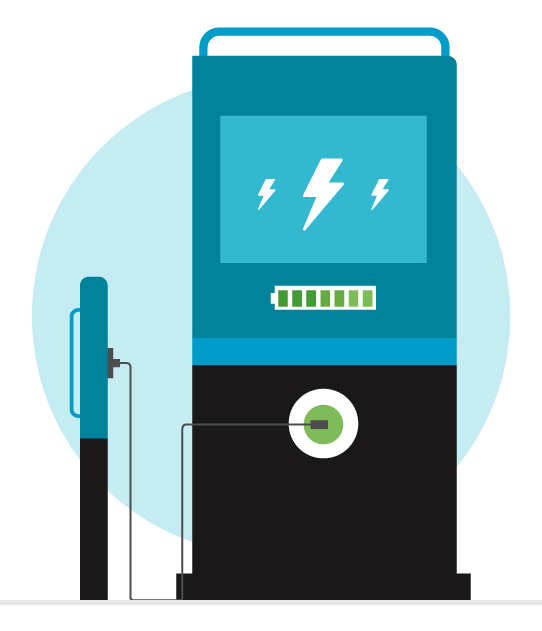
‘Progress for Humanity’ represents Hyundai Motor’s commitment to
realizing emissions-free mobility as a fundamental human right.

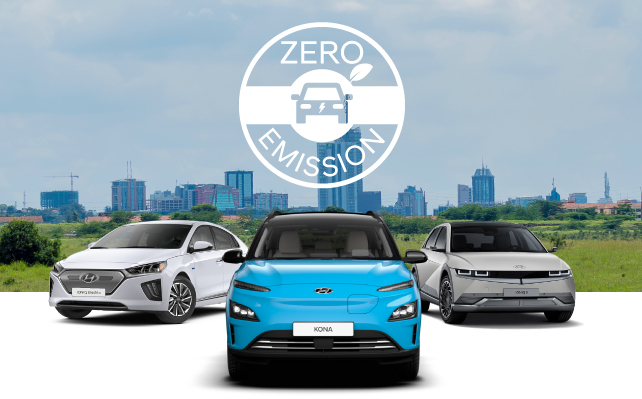
Do you have any questions? Let us know in the form below!
We’ll get back to you as soon as possible.